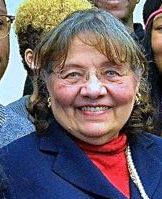A Quote by Roger Wilkins
In the days of segregation, when blacks were limited to certain neighborhoods, you could look around the black community and identify who the leaders were.
Related Quotes
Blacks have experienced a history of victimization in America, beginning obviously in slavery and then another 100 years of segregation. I grew up in segregation. I know very well what it was about and all of the difficulties it placed on black life, and how we were truly held down before the civil-rights movement.
Blacks were not enslaved because they were black but because they were available. Slavery has existed in the world for thousands of years. Whites enslaved other whites in Europe for centuries before the first black was brought to the Western hemisphere. Asians enslaved Europeans. Asians enslaved other Asians. Africans enslaved other Africans, and indeed even today in North Africa, blacks continue to enslave blacks.
History is a continuum, it's not these separate moments. That's how we look at it. In the 1700s in Virginia before there were police officers - there were these groups of men who would wander the countryside - and if they saw a black man or a black woman they would presume that that black man or woman was a slave. If you didn't have the kind of pass that you were supposed to have, then you could be whipped, you could be enslaved, you could be taken into custody - even if you were free. And as I'm reading this I find myself thinking, "How is this any different from stop-and-frisk?"
These events are swirling around them. In the white community, people felt like they had no control over their neighborhoods, their destiny. In the black community, centuries of government and economic forces were pushing on them. I went in with a kind of arrogance, maybe, that came from living in a very intellectual family, and I left knowing that there was a lot about the way people lived that I didn't know about.
My parents were 30 years older than I was, and my parents had my brother and I ten years apart. My parents grew up in segregation, and they both lived in all-black neighborhoods and grew up with large black families. I didn't have any of that, and I didn't understand feeling so differently and being treated so differently.
Over the years, black leaders have been slow to recognize the need for a very, very progressive agenda. Anytime someone has talked about putting America back to work, blacks should have said yes, but they didn't. They were so preoccupied with affirmative action that they didn't provide the kind of leadership that would help some of the other progressive folks. Only now are black leaders beginning to realize the impact of economic issues.





































